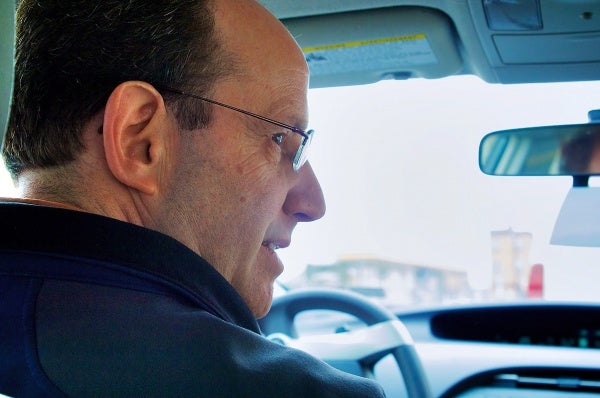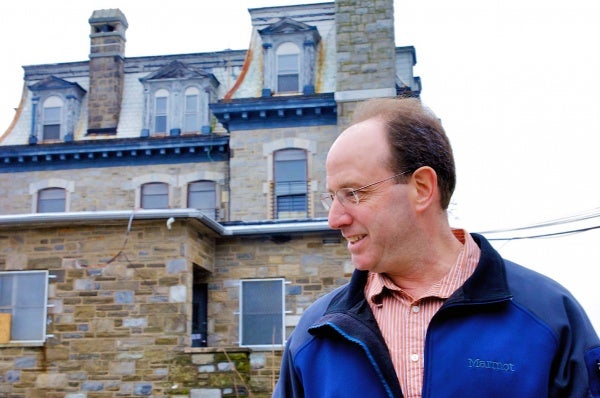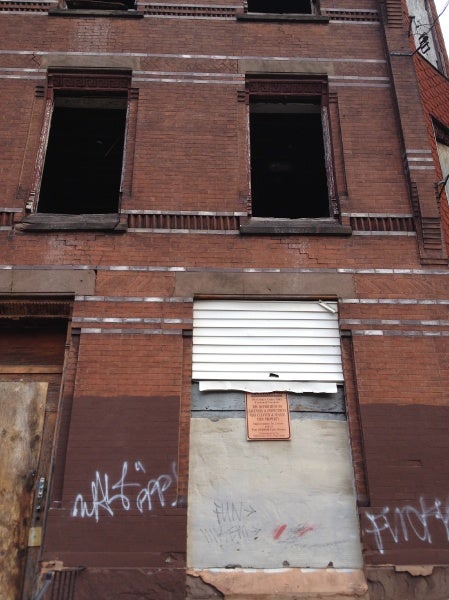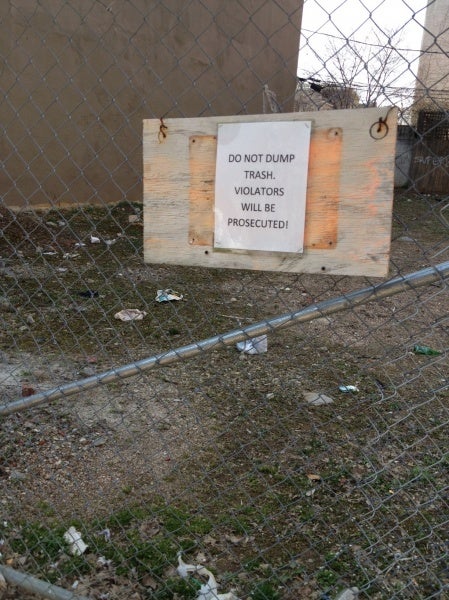Philly’s got a real litter problem
I explored North Philly the other day and three things stood out.
Empty lots.
Litter.
And churches – usually right next to those litter-strewn empty lots.
I’m not trying to pick on North Philly – it’s clear garbage is an issue all over the city.
And since we’re all just getting to know each other here, I should probably tell you that I’m slightly obsessed with litter. Blame it on growing up with that “Crying Indian” commercial. On parents who gave me the evil eye if I even thought about throwing a piece of trash on the street.
But mostly, blame it on my belief that nothing excuses littering – not a lack of public garbage receptacles — though some neighborhoods could seriously use some. Not a high-crime neighborhood, not poverty. Nothing.
In my old life, I wrote a lot about trash. I organized a cleanup that stands out as one of the better days of my career so far. I wondered then what I wonder now as I explore Philly: What is with all the litter?
So, I asked Bishop Derrick Williams, whose tidy church — Shiloh Apostolic Temple — sits right across the street from one of the most littered lots on Master Street.
“Home of fasting and prayer,” a sign outside the church reads.
How about home of the neighborhood cleanup? I wondered as I went looking for the pastor.
Ironically, I found Williams and several workers, meticulously cleaning up the church grounds.
I wouldn’t have totally blamed Pastor Wiliams if he told me to get lost when I asked why they didn’t take their efforts across the street. But he didn’t. Instead, he walked me back to the mess and told me about the decades-long battle he and the church have had with keeping the area clean.
When he was growing up around the neighborhood, Williams reminisced, kids seemed to know better than to throw trash on the streets. People may have been poor, but they were proud and kept the streets clean. Strangers respected their homes.
“This is a sign that too many people just don’t care,” he said.
Turns out, he and other church members have taken it upon themselves to clean up around the fenced lot several times. And, he said, he’s been after the city for years to deal with the eyesore.
Once, he instructed parishioners to call the city’s 311 help line. They did. No one came out, Williams said. Another time, when the grass grew taller than the fence, the manager of the neighboring housing complex called in a favor and city workers finally came out. The grass was so high they had to go at it with a machete.
“If I had let my grass grow that high, I would have been fined immediately,” Williams said.
The grass was gone, but the trash wasn’t – and it seems to multiply every day, he said. I felt for him – to a point. Philly’s got a serious problem with litter. The city’s 5th annual spring cleanup is April 14. (People can submit projects. Imagine how much cleaner some neighborhoods would be if each Philly church took on one littered lot?)
The city cleanup is a good idea – but one that Pastor Williams and other residents I spoke to said doesn’t really impact their neighborhood.
That’s too bad. But I wasn’t ready to let Pastor Williams off the hook just yet. Why not just clean the lot themselves, I asked? It may not be their property, but it is their neighborhood. And if covering cities teaches you anything it’s that residents can waste a lot of time waiting on people to do the right thing — or they could just do it themselves.
He said it was a fair question, and expectation. But he and his church members are already maintaining another lot right next door to the church. That one, said Pastor Williams, is owned by the Philadelphia Housing Authority.
“If we didn’t, people would be coming in asking the same questions you did about the lot across the street,” he said. “But if I keep taking on dirty lots around here, I’d spend all my time cleaning instead of ministering.”
WHYY is your source for fact-based, in-depth journalism and information. As a nonprofit organization, we rely on financial support from readers like you. Please give today.









































